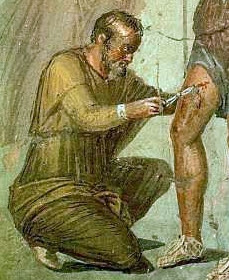I didn't know much about professor Sir Bruce Keogh until today, but I read his proclamations on doctors' pay and thought I should find out about him. It turns out from his puff-piece on the DoH website that he is NHS medical director.
My reason for looking him up was an article on the BMA website which I'm afraid is subscription only (but see how you get on with that link). In it he says that doctors should consider accepting a pay freeze to help the NHS through the financial crisis, and presciently warns of "tough times ahead" thanks to the "recession's fall-out", presumably while popping down to his local stables to bolt all the doors he left open midway through 2007.
He goes on to say:
"We need to see doctors stepping up to the plate in terms of leadership roles and recognising their financial responsibilities. They need to take control of budgets and accept pay restraint. Doctors have to recognise that they are not above the rest of society. There are all sorts of people out there who are not getting pay rises at the moment, and there would have to be very particular reasons why doctors were [exempt from] that."
Given Prof. Sir Keogh's confusion about the timing of the recession, it's no surprise that he hasn't noticed the phenomenally large amounts of money that other bits of society are paying themselves, and in so doing has aligned himself with such economically-savvy luminaries as the Duke of York and Boris Johnson. Are we quite sure someone who's only just noticed the recession, and hasn't noticed bankers' plans to pay themselves billions of pounds, is genuinely a professor? This isn't some new-Labour reward for brainlessly toeing the party line via statements that appear to have been ghostwritten for him by the Daily Mail, as his knighthood presumably was, is it?
There is a wider point at play here. What we have here is a doctor already in a leadership position, who has by definition presided over the disastrous financial mismanagement of the NHS over the past decade, the leeching of doctors and nurses away from the public sector and the country, and the rock-bottom morale which comes from people like Bruce making imbecilic pronouncements about things they know nothing about. He can afford to take a pay freeze - based on publically available information about what medical directors of individual NHS trusts make, he's might be on 120k or more. But why should I, as one of the thousands of doctors who for years have been telling the leaders of our profession exactly what they should do to save money and have been totally ignored, take a pay cut because the government has screwed things up so royally? If you want me to take a pay cut and to show "leadership", that's fine - but I won't bloody do so until I get some power to affect spending decisions locally so that the same idiots who've got us into this state can't carry on screwing things up.
Let me put this more simply, Bruce: don't witter on about 'leadership' unless you're willing to devolve some actual responsibility with it.
-



